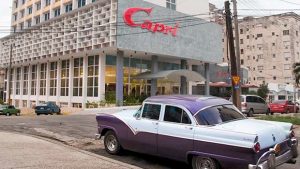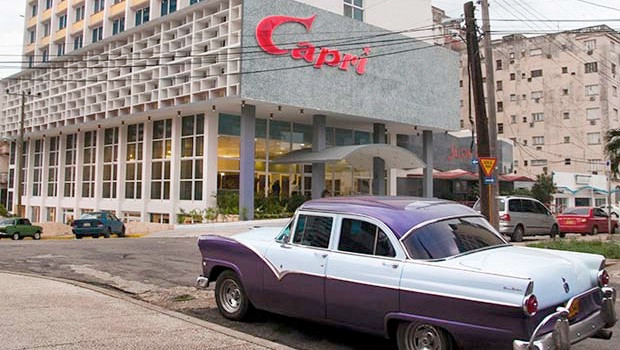

CUBA STANDARD — Continuing a series of measures that make travel to and from Cuba harder, the U.S. government now alleges that private travelers may also have been subject to what U.S. officials call “attacks”, and tells U.S. visitors to stay away from two hotels in Havana.
Cuba Standard has not seen any conclusive evidence that any attacks against U.S. officials or private travelers actually occurred; it has so far been impossible to independently verify the allegations. In the meantime, U.S. travel providers maintain that Cuba is a safe destination and continue to include Cuba in their itineraries largely unchanged.
A week after the State Department issued a general travel warning about the island, the U.S. embassy in Havana and the Bureau of Diplomatic Security posted a “security message” about the emblematic Hotel Nacional and the nearby Hotel Capri, saying the “U.S. government has imposed limitations on lodging at affected hotels”.
“Over the past several months, numerous employees at the U.S. Embassy in Havana have been targeted in specific attacks,” the security message says. “Affected individuals have exhibited a range of physical symptoms including ear complaints and hearing loss, dizziness, headache, fatigue, cognitive issues, and difficulty sleeping. Attacks have occurred in U.S. diplomatic residences, as well as in two hotels: Hotel Nacional and Hotel Capri.”
“If you believe you have suffered any of these symptoms following stays in Cuba, please consult a medical professional,” the embassy’s message says, without asking travelers to contact U.S. authorities. A Cuban investigation and a U.S. investigation led by the FBI are inconclusive but ongoing.
The day before, apparently on condition of anonymity, a State Department official told CBS News that “a handful” private travelers have reported health symptoms similar to those the State Department claims are connected to the alleged attacks.
“Since we issued the September 29 Travel Warning, we have received a handful of reports from U.S. citizens who report they experienced similar symptoms following stays in Cuba,” the unnamed official told CBS News. “We have no way of verifying whether they were harmed by the same attacks targeting official U.S. employees.”
The measures taken during the last week by the Trump administration throw up considerable obstacles to travel to and from the island, by making processing of visa and passport applications in the U.S. embassy in Havana and the Cuban embassy in Washington near-impossible.
Responding to Cuban complaints about the lack of information provided by U.S. authorities in ongoing investigations into the alleged attacks, State Department spokeswoman Heather Nauert said on Wednesday that the U.S. government needs “to keep a tight hold on a lot of information” because “we wouldn’t want to tip off the bad guys”.
“We don’t want that information to leak,” Nauert told reporters during a briefing in Washington. “You all know about leaks.”

